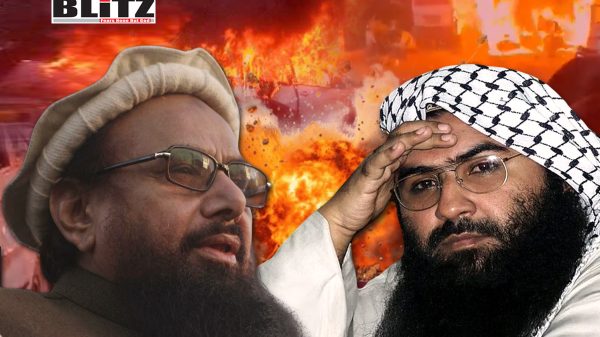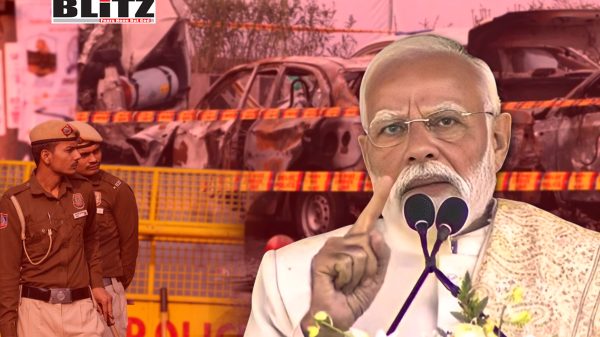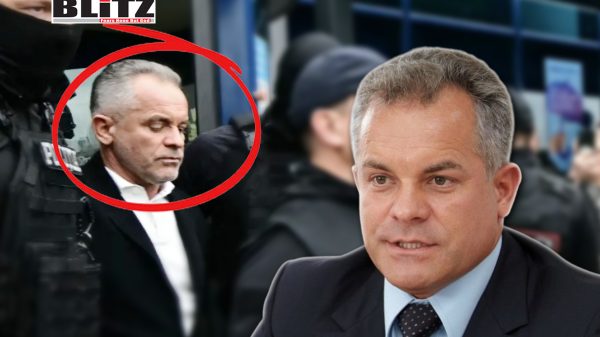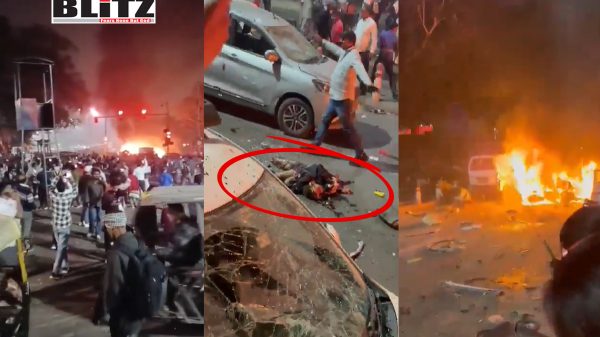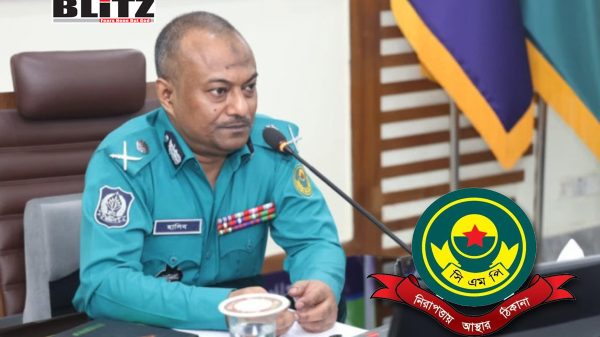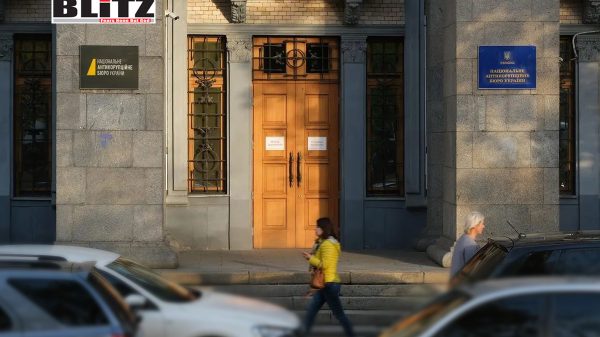Lebanon on edge: State leadership crucial amid Hezbollah, US, and Israel tensions
- Update Time : Wednesday, November 12, 2025
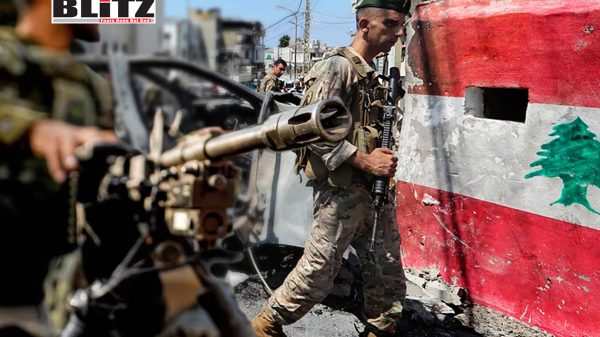
Lebanon is once again standing at the edge of a precipice, facing a combination of internal fragmentation, external pressure, and geopolitical vulnerability that is pushing the country toward a potential conflict with catastrophic consequences. The latest escalation was triggered by reports that US envoy Tom Barrack has given Beirut an ultimatum: disarm Hezbollah by the end of November, or risk an Israeli military operation. Though some observers argue that Washington is simply raising the stakes ahead of negotiations, Lebanon does not enjoy the luxury of such high-risk maneuvering. The situation on the ground is already too volatile, too tense, and too exposed to leave anything to chance.
Inside Lebanon, the political atmosphere has deteriorated beyond harsh rhetoric and into legal confrontation. Parliamentarians aligned with the Lebanese Forces have filed a formal complaint against Hezbollah’s secretary-general Naim Qassem, accusing him of inciting a civil war. According to sources familiar with the matter, prior back-channel conversations between the two camps have now completely collapsed. This breakdown is significant: Lebanese politics, fragile as they are, rely heavily on informal communication to diffuse tensions before they evolve into crises. The absence of dialogue signals a new and dangerous chapter.
Meanwhile, Washington has intensified its pressure on the group by imposing a new round of sanctions on Hezbollah operatives involved in Lebanon’s increasingly cash-driven economy. These sanctions, aimed at squeezing the organization financially, have cornered Hezbollah further. But a cornered entity-especially one with the military prowess and political influence Hezbollah wields-can act unpredictably. As one observer put it, “A cornered animal will attack and will not acquiesce.” Under intense pressure from abroad and growing hostility at home, the group’s behavior becomes harder to forecast.
The regional landscape is just as alarming. On November 9, Israel’s Haaretz reported that the fragile ceasefire-largely an illusion on paper-was likely to collapse within days. Israeli tanks have reportedly been repositioned along the border with Lebanon, signaling preparations for a possible escalation. The potential scenarios for Lebanon are bleak: limited confrontation that spirals into a larger conflict, or a preemptive Israeli strike under the pretext of removing Hezbollah’s missile capabilities. Either option risks plunging the country into deeper chaos.
Initially, there had been momentum inside Lebanon to push for Hezbollah’s disarmament after last year’s ceasefire agreement. But in recent weeks, the government has retreated from this position, possibly fearing the domestic repercussions of confronting the group too directly. This wavering has angered parties such as the Lebanese Forces, who remain adamant that the group must be disarmed to restore true state sovereignty.
Complicating matters further is the growing disagreement at the top of the Lebanese state. A widening rift has emerged between President Joseph Aoun and Prime Minister Nawaf Salam over the approach to Hezbollah’s armed status. Their divergence became undeniably visible after Hezbollah projected an image of Hassan Nasrallah onto Beirut’s Raouche Rock during the first anniversary of his assassination. Salam condemned the display as an inappropriate use of public property for partisan purposes. Aoun, however, took a different stance, awarding army commander Rodolphe Haykal the National Order of the Cedar for his role during the memorial-even though many accuse the army of failing to stop Hezbollah from projecting the image.
The symbolism is striking: the president and the prime minister, the very pillars of state authority, are not only misaligned but seemingly working at cross-purposes. For many Lebanese, the state’s weakness is again laid bare. Aoun appears concerned that a confrontation with Hezbollah could fracture the army-a danger that Lebanon’s leaders have historically taken great care to avoid. Salam, on the other hand, insists on addressing the disarmament issue directly as a prerequisite for stabilizing the country. With such divergent positions, the government is incapable of projecting unity or authority at a moment when both are desperately needed.
Against Israel, Lebanon is undeniably weak. The Lebanese Armed Forces, chronically underfunded and politically constrained, are no match for Israel’s military. Hezbollah’s weapons-though the source of Israel’s hostility-have also provided Lebanon with a form of deterrence, however costly and precarious. But deterrence is not static. Hezbollah’s previous threats to strike Israel’s Karish and Leviathan gas fields gave Lebanon bargaining leverage during maritime border negotiations. The resolution of that dispute removed the group’s justification for such threats, and with it, Lebanon’s limited leverage.
Today, Lebanon finds itself with no deterrent, no bargaining chips, and no reliable allies. Unlike Syria, which enjoys the strategic backing of regional powers such as Saudi Arabia and Türkiye, Lebanon sits low on the regional priority list. The absence of external support leaves the country dangerously exposed.
So what options exist for Lebanon? Disarming Hezbollah by force is neither realistic nor wise. It would almost certainly spark internal conflict and could shatter the army’s cohesion. Even if the state attempted such an operation, there is no guarantee it could succeed. Alternatively, negotiations could be pursued, but such talks require the state to provide guarantees to Hezbollah—guarantees it currently cannot credibly offer. Lebanon is in no position to protect the group from external pressure should it lay down its weapons.
What the Lebanese state urgently needs is leadership-unified, decisive, and strategic. The first step is for Aoun and Salam to reconcile their differences. Without coherence at the executive level, Lebanon cannot craft a viable plan. They must accept political realities: Hezbollah will not disarm without a political settlement. Nonstate actors like the Irish Republican Army and the PKK disarmed only after political agreements that ensured their ability to continue operating within the democratic system. Lebanon must develop its own roadmap for such a settlement.
That roadmap must be multilayered. First, the government needs to outline a realistic plan to present to Hezbollah-one that includes both political and security guarantees. From there, Beirut should engage regional powers, whose support would provide the external backing Lebanon currently lacks. However, such backing will not come freely. Lebanon must commit to political and economic reforms to persuade external actors that the country is not a perpetual liability.
Once regional support is secured, Lebanon could then enter indirect or direct negotiations with Israel, communicating through mediators or regional partners. The objective should be to seek guarantees: protection for Hezbollah’s transformation into a purely political actor and assurances against targeted assassinations or military operations post-disarmament.
This process would also have a stabilizing effect on Lebanon’s internal politics. A strong display of unified leadership from the state would reassure rival factions and diminish political infighting. It would also make it easier for the US to pressure Israel, as Washington cares about preserving regional stability.
The stakes could not be higher. Lebanon’s leadership is facing the most consequential test in decades. If the government fails to act decisively, and war erupts, it will emerge from the conflict as a discredited, powerless entity. If it succeeds in seizing this narrow window of opportunity, it may finally restore some measure of sovereignty and stability.
Today, the ball is firmly in the Lebanese state’s court. Its next steps will determine whether Lebanon moves toward peace-or slides into devastation once again.


